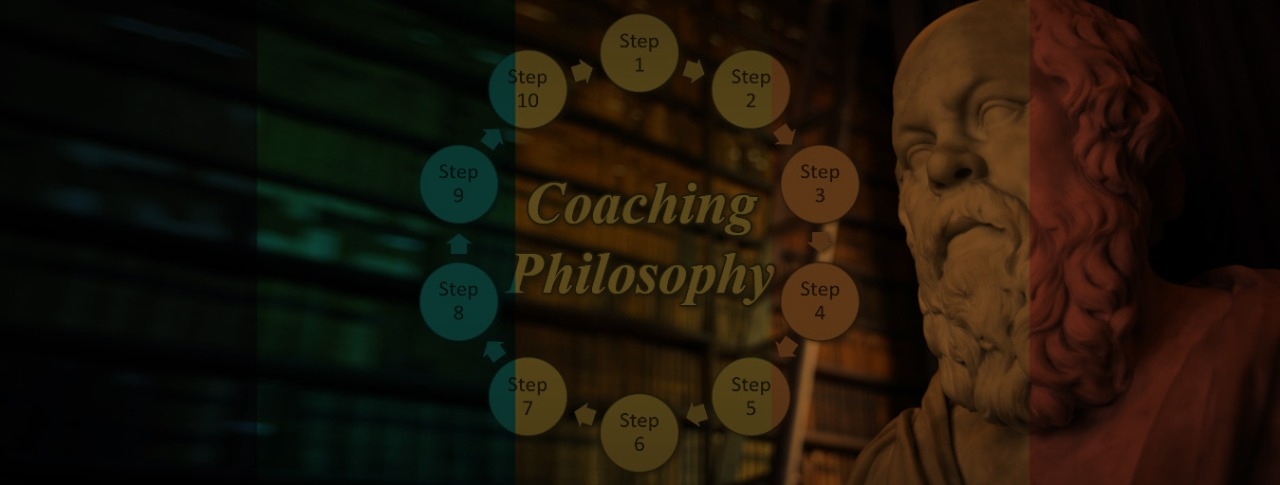10-Step Guide to Developing Your Coaching Philosophy
Author: Team xMonks | Published on: Sat, 27 Feb 2021 17:51:42 +0000

Being a coach comes with its own challenges. You constantly make choices that affect both you and your clients. Balancing customer growth and winning while meeting their needs is crucial. This requires transparency and consistency in your coaching philosophy.
Building a winning strategy is essential for your coaching career's success. When formulating your own coaching philosophy, consider these 10 critical points:
1. Configure Your Beliefs
As a new coach, you face pressure to excel. You might find yourself playing a role that fits the process but doesn't align with your values. Many coaches adapt to their clients' desires but lose sight of their profession's core purpose. Start by understanding yourself, defining your beliefs and norms, and then integrate them into your work. A coaching philosophy reflects who you are, and you should practice it. Ensure a personal value system guides you in your profession.
2. Define Your Goals/Purpose
What do you aim to achieve as a coach? Developing a winning coaching philosophy means determining your coaching intent and focusing on your goals. What does it mean to be a coach for you? Who comes first, your clients or your income? Reaching your goals requires focused effort, and for that, you need clarity about your motivations.
3. Develop a Mission Statement
This statement incorporates your principles and values, driving you toward your goals. Your clients are central to this, and the focus should be on them. Combined with your principles, your personal beliefs will create a strong path for participants in your coaching program.
4. Choose Your Leadership Approach
This is vital in your coaching philosophy. Early in your career, establish a leadership style and continually refine it as your influence grows. In the business world, a participatory leadership style encourages active engagement from participants in your initiatives. It fosters creativity and simplifies things for you.
5. Enhance Self-Awareness
Self-awareness involves knowing your strengths, weaknesses, priorities, and reactions to various situations. Focus on both your coaching and yourself to improve this. Ask yourself challenging questions and assess your responses. Consider your coaching and your surroundings to explore your next steps. Such questions may include:
- What's my goal?
- How should I respond?
- How can I respond?
- What is this asking me/what am I going to change?
6. Convey Your Philosophy
Sharing your ideology signifies that you've openly and publicly declared your goals, taking responsibility and accountability for your potential actions. Be prepared to be questioned if you don't deliver on what you promised.
7. Establish Expectations
Now that you understand what needs to be achieved, how do you set expectations that reflect the desired level of results? As a coach, you must set standards that you want to achieve. These requirements must be clear for both you and your clients. Lead by example and establish standards that all program participants must meet. The curriculum should include a way to measure progress. For example, if you work with entrepreneurs, you could require your clients to develop their ideas into a viable business model by the end of the coaching program.
8. Write Down Your Philosophy and Live It Every Day
Having a written philosophy is helpful – a concrete reference point and focus. However, a theory lacks legitimacy if it exists only as a written text and is irrelevant to actual actions and activities. The best approach is to live it and "walk the walk" to embody the philosophy.
9. Continue to Amend Your Philosophy
Researchers have found that "expert" coaches understand the influence of operational and organizational context on a theory and adapt their conceptual framework to suit that context. Do you fully understand the context and environment in which you work?
10. Incorporate Lessons from Life Experiences
Recognize the influence of life experiences and how they can shape your philosophy. By focusing on these experiences, you can create a dynamic, ever-evolving structure that drives your attitudes and actions.
The values, methods, and preparation you've acquired will help you shape a coaching philosophy. Remember that it's not set in stone and should be revisited in the future to strengthen it. Regardless of the type of coaching you choose, ensure a well-defined philosophy is in place, as it influences the outcome of your overall program.




.png)